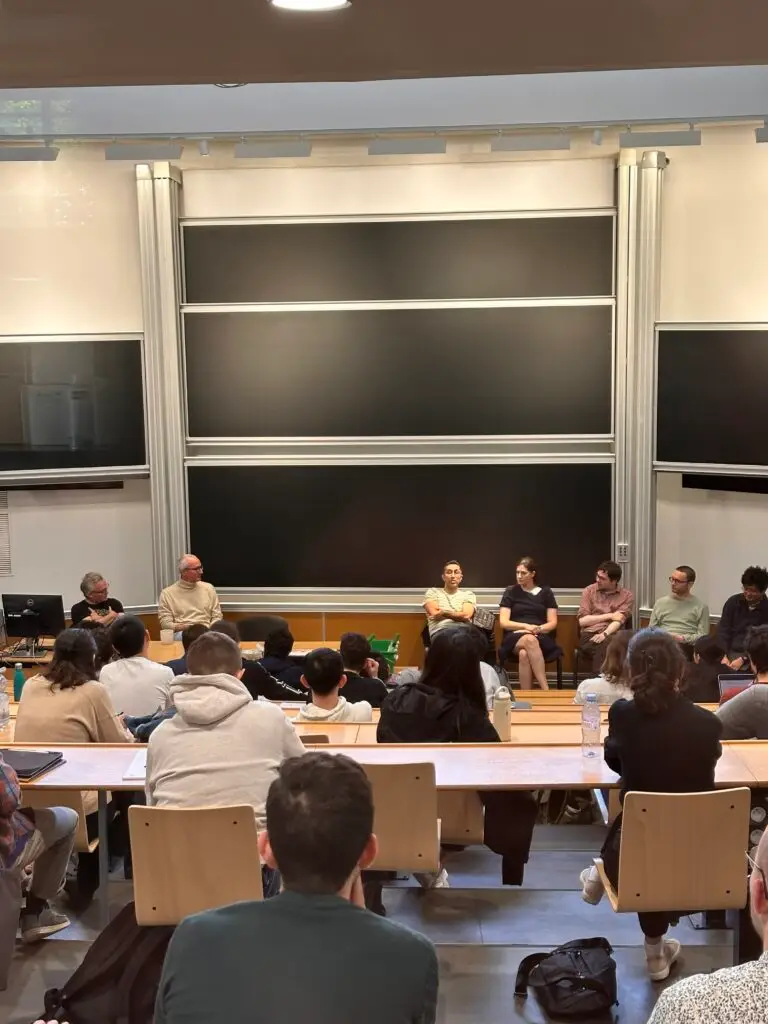Scientific Committee
Comité Scientifique
Carolina Araujo (IMPA)
Sebastien Boucksom (Sorbonne Université)
Simon Donaldson (Imperial College London)
Chenyang Xu (Princeton)
Organizing Committee
Comité d’organisation
Ivan Cheltsov (University of Edinburgh)
Liana Heuberger (Aix-Marseille Université)
Frédéric Mangolte (Aix-Marseille Université)
K-stability is a central topic in modern complex geometry. It characterises Fano manifolds that admit a Kähler-Einstein metric and provides a good notion of compact moduli space for Fano varieties. The winter school will bring together experts on K-stability who will give 8 mini-courses for PhD students and young researchers with a special focus on explicit problems in dimensions two and three. Along with lecture courses, there will be exercise sessions.
MINI-COURSES
Hamid Abban (University of Nottingham) Introduction to K-stability invariants
I will introduce the basic definitions in K-stability and some methods to estimate them.
Thibaut Delcroix (Université de Montpellier) & Kento Fujita (Osaka University)
A few points of view on the delta invariant
A few points of view on the delta invariant
Abstract: The algebraic delta invariant, a number encoding the K-stability of a Fano variety, will be a central theme of this Winter school. In this mini-course, we will explore various points of view on this invariant.
In the first lecture, Thibaut Delcroix will present an analytic viewpoint on the delta invariant developped by Kewei Zhang, along with the rough ideas of the variational approach to existence of canonical Kähler metrics. In his second lecture, he will extend this to the weighted Kähler setting (joint work with Simon Jubert), allowing to deal with Kähler-Ricci solitons and more.
In the third and fourth lecture given by Kento Fujita, he will explain a part of recent Chenyang Xu’s book about Ding stability for filtrations. The goal of the second talk is to learn the strategy of the proof of the equivalence between Ding semistability of X and \delta(X) \geq 1 for Fano manifolds X, without using Li-Xu’s theorem on special test configurations.
Ruadhaí Dervan (University of Glasgow) & Eveline Legendre (Université de Lyon)
Valuations and stability of polarised varieties
Valuations and stability of polarised varieties
Abstract: Most of the progress in the theory of K-stability of Fano varieties is based on the reinterpretation of K-stability through divisorial valuations and associated numerical invariants. This course will explain versions of these results and ideas for general polarised varieties, where much remains to do.
More precisely, the first two lectures will explain how to generalise the beta-invariant of Fujita and Li to more general polarised varieties, following [1]. This produces something that is expected to be weaker than K-stability in general, and the second two lectures will explain how considering not just a single divisorial valuation, but instead a convex combination of divisorial valuations, results in a theory that should be equivalent to K-stability. The second two lectures will involve ideas from non-Archimedean geometry, and will follow [2].
[1] R. Dervan and E. Legendre, Valuative stability of polarised varieties, arXiv:2010.04023 (Math. Ann. 385 (2023) pp. 357-391) [2] S. Boucksom and M. Jonsson, A non-Archimedean approach to K-stability, II: Divisorial stability and openness, arXiv:2206.09492, (J. Reine Angew. Math. 805 (2023), pp. 1-53)
Kristin DeVleming (University of Massachusetts) Introduction to K-moduli
I will introduce the concept of K-moduli illustrated by some examples of moduli spaces and related comparisons with GIT and wall-crossing phenomenon.
LECTURERS
Elena Denisova (University of Edinburgh) Delta-invariants
Joe Malbon (University of Edinburgh) K-moduli
Joe Malbon (University of Edinburgh) K-moduli
Tiago Duarte Guerreiro (Université Paris-Saclay) K-stability
Masafumi Hattori (Kyoto University) K-stability of polarized varieties
SPONSORS




